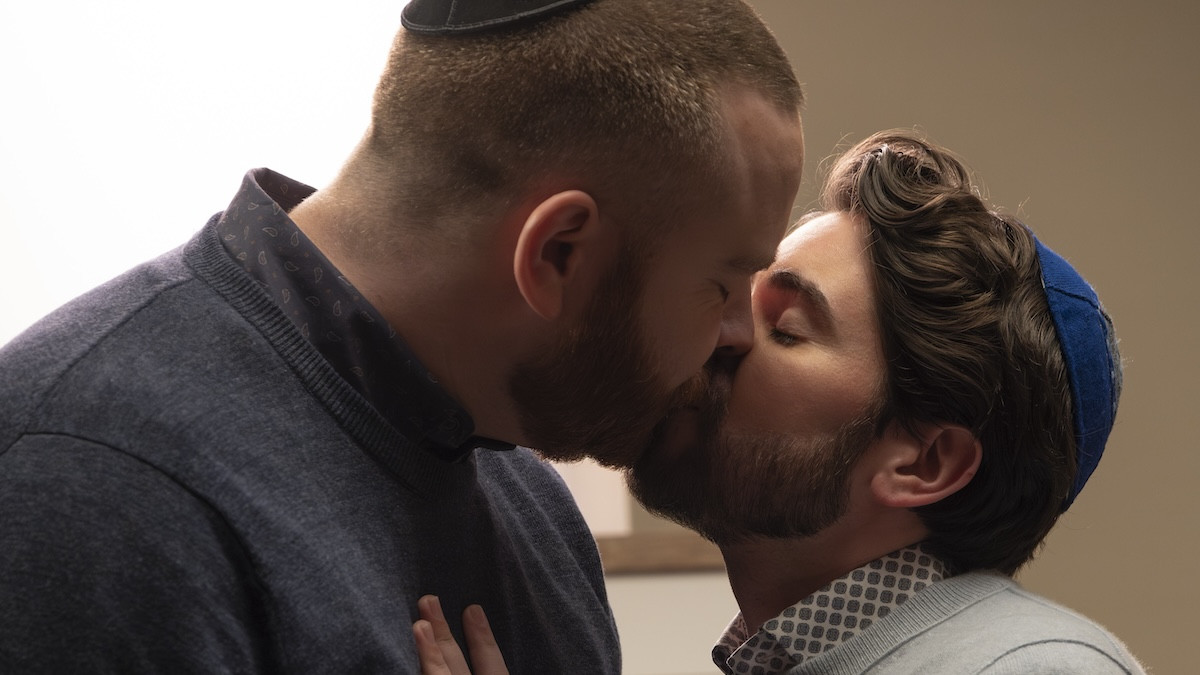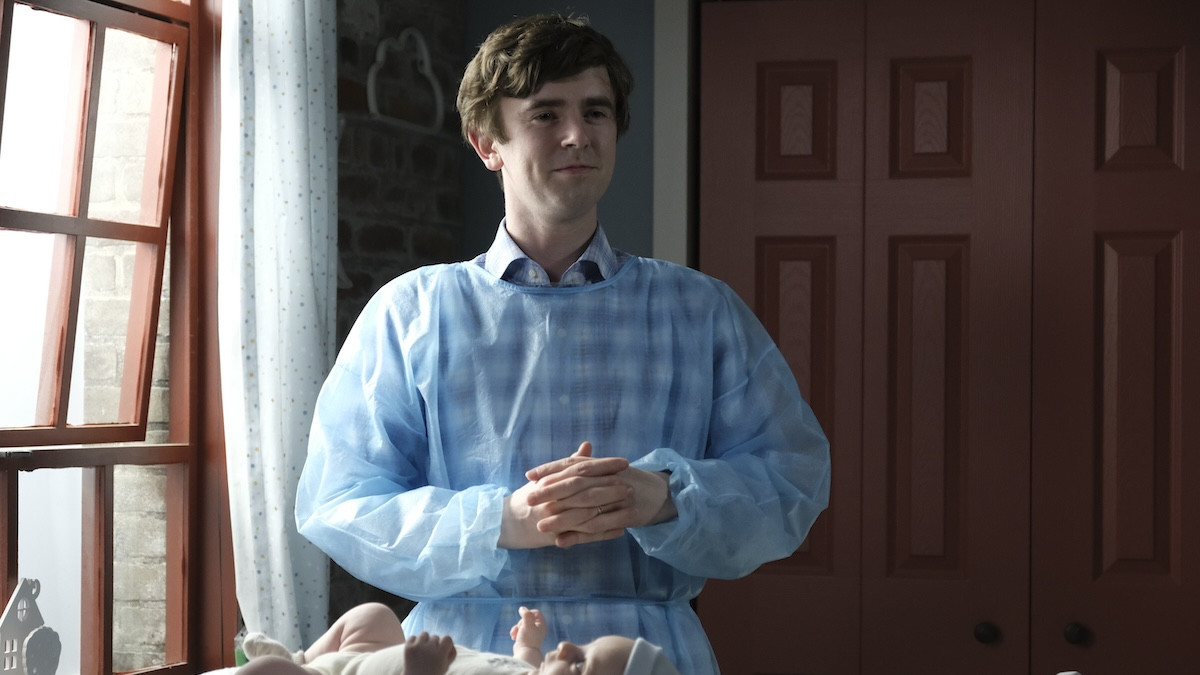“The Good Doctor” delivered a shocking blow to its audience in a recent episode, marking a significant and tragic departure for a beloved character. Dr. Asher Wolke, portrayed by Noah Galvin, became the victim of a hate crime, leaving viewers reeling and prompting questions about the reasons behind this dramatic exit. This article delves into why Asher left “The Good Doctor” Season 7, exploring the circumstances surrounding Noah Galvin’s departure and the narrative choices that shaped this impactful storyline.
The episode, titled “Who at Peace,” concluded with the devastating death of Dr. Asher Wolke. After helping a patient fulfill his wedding wishes and confronting his own complex relationship with his Jewish faith, Asher’s life was tragically cut short in a senseless act of violence. This occurred as he assisted a rabbi back to the synagogue, only to be attacked by vandals, leaving his partner, Jerome, waiting to propose.
 the-good-doctor-giacomo-baessato-noah-galvin-disney-jeff-weddell
the-good-doctor-giacomo-baessato-noah-galvin-disney-jeff-weddell
Asher Wolke and Jerome, portrayed by Noah Galvin and Giacomo Baessato, shared a loving relationship on “The Good Doctor,” which ended in tragedy.
The departure of Asher Wolke was not merely a plot twist for dramatic effect; it was a decision influenced by actor Noah Galvin’s career aspirations. According to series writer Adam Scott Weissman, Galvin expressed a desire to explore other opportunities beyond “The Good Doctor.” This prompted the writers to create an exit for Asher that was both meaningful to his character arc and impactful for the series’ final season.
Weissman explained in an interview with TheWrap, “We came into this [episode] with the thought that life doesn’t always have happy endings. Sometimes things happen suddenly and in a tragic way.” This narrative direction allowed the show to address pressing real-world issues, specifically the alarming rise of antisemitic and anti-LGBTQ+ attacks. By having this tragedy befall a character viewers had grown to care for, the writers aimed to underscore the painful reality of such hate crimes and their devastating consequences.
The episode “Who at Peace” served as a poignant exploration of Asher’s identity. It saw him reconcile with his Jewish upbringing while navigating his identity as a gay man. Asher’s powerful line, “I’m not just a Jew, I’m a gay one, too,” encapsulates his journey of self-acceptance and the culmination of his internal struggles. This moment of triumph, however, is juxtaposed with his tragic end, highlighting the cruel irony of hate-fueled violence interrupting personal growth and happiness.
While acknowledging the potential “bury your gays” trope, Weissman emphasized that the intention was to give Asher’s story a “satisfying ending.” He credited showrunner Liz Friedman for guiding the writers in crafting a sensitive and emotionally resonant episode. The aim was to portray Asher’s death not just as a tragedy, but also as a “heroic moment” where he stood up for his identity and protected a sacred space.
 the-good-doctor-freddie-highmore-abc-jeff-weddell
the-good-doctor-freddie-highmore-abc-jeff-weddell
Freddie Highmore as Dr. Shaun Murphy in “The Good Doctor.” The series is in its final season on ABC.
The aftermath of Asher’s death is set to have a significant impact on the remaining episodes of “The Good Doctor” Season 7. A preview for the following episode indicates a memorial service for Asher, and Weissman hinted that his death will deeply affect the trajectories of other characters, including Jerome. As “The Good Doctor” approaches its finale, Asher Wolke’s departure serves as a stark reminder of life’s fragility and the importance of confronting prejudice and hate.
In conclusion, Asher Wolke left “The Good Doctor” Season 7 due to Noah Galvin’s decision to pursue new acting opportunities. This departure was woven into the narrative to address relevant social issues, creating a powerful and tragic storyline that highlights the impact of hate crimes and the importance of embracing one’s identity. While Asher’s death is undoubtedly a heartbreaking event for viewers, it serves as a catalyst for further emotional depth and character development in the show’s final episodes.

